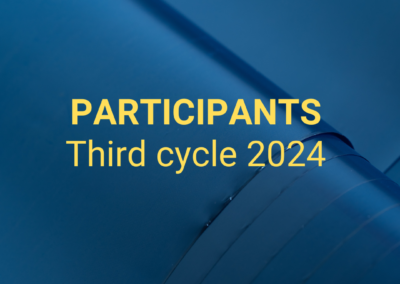THE EPPO AND EU LAW: A STEP FORWARD IN INTEGRATION
Topic 5 – 2024 – The Eppo, judicial cooperation and internal and external security
25th March 2024 | 16:30-18:30 | building U6 – aula 05
The EPPO and the European Commission’s Anti-Fraud Strategy 2019
The start of the operations of the EPPO should be an important step forward in bringing new impetus to the overall anti-fraud architecture of the Union. The EPPO will endeavour to be actively involved in the main strategic EU initiatives in this area, notably the revised 2019 Commission’s Anti-Fraud Strategy (CAFS).
Participants:
Benedetta Ubertazzi,
Fabrizia Bemer – Slides
Here you can find the video of the lesson
26th March 2024 | 16:30-18:30 | building U6 – aula 26
The EPPO cooperation with Europol, OLAF and Eurojust
To achieve its objectives, the EPPO establishes effective cooperation with its key partners.At the EU level, close cooperation with Europol, OLAF and Eurojust in particular remains essential for ensuring that the scope of investigations into offences affecting the Union’s budget is comprehensive, and that the new institutional design for the fight against fraud is fully effective.
Participants:
Benedetta Ubertazzi;
Pietro Suchan – Slides
Here you can find the video of the lesson
27th March 2024 | 16:30-18:30 | building U7 – aula 04
The EPPO between EU internal and external security
The security challenges facing the EU are evolving, especially EPPO personal data processing activities, as well as illegal migration and terrorism. The role of CFSP/CSDP and the area of Freedom, Security and Justice in facing these challenges, as well as the issue of proper coordination between EPPO and the different EU agencies potentially involved will be addressed.
Participants:
Benedetta Ubertazzi;
Antonio Tanca – Slides
Topics

Funded by the European Union. Views and opinions expressed are however those of the author(s) only and do not necessarily reflect those of the European Union or the European Education and Culture Executive Agency (EACEA). Neither the European Union nor EACEA can be held responsible for them.







